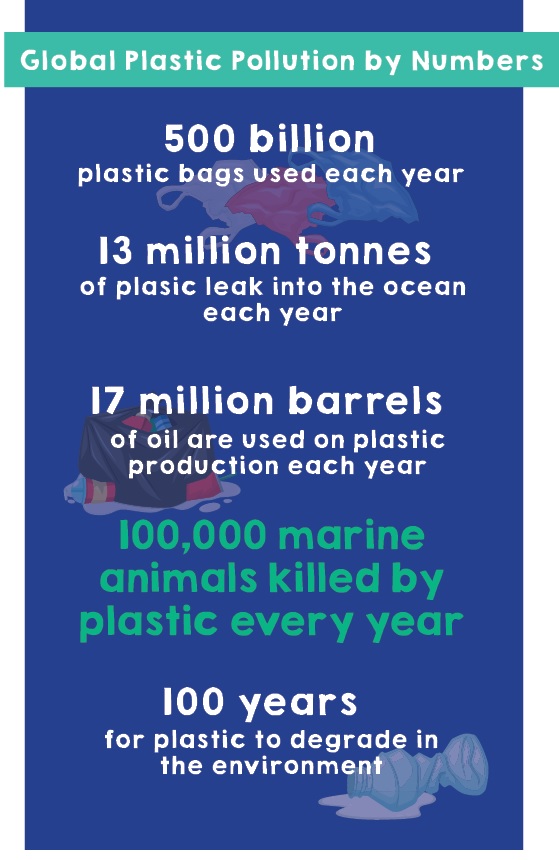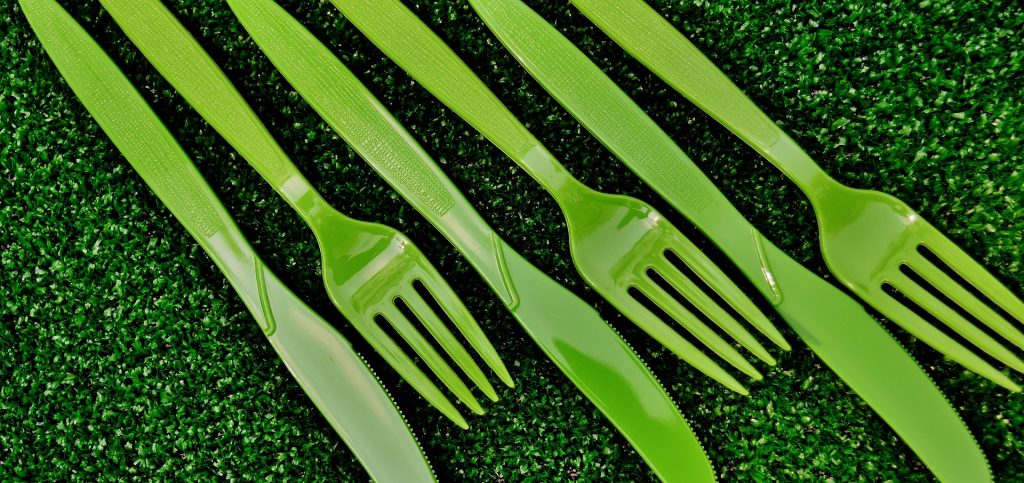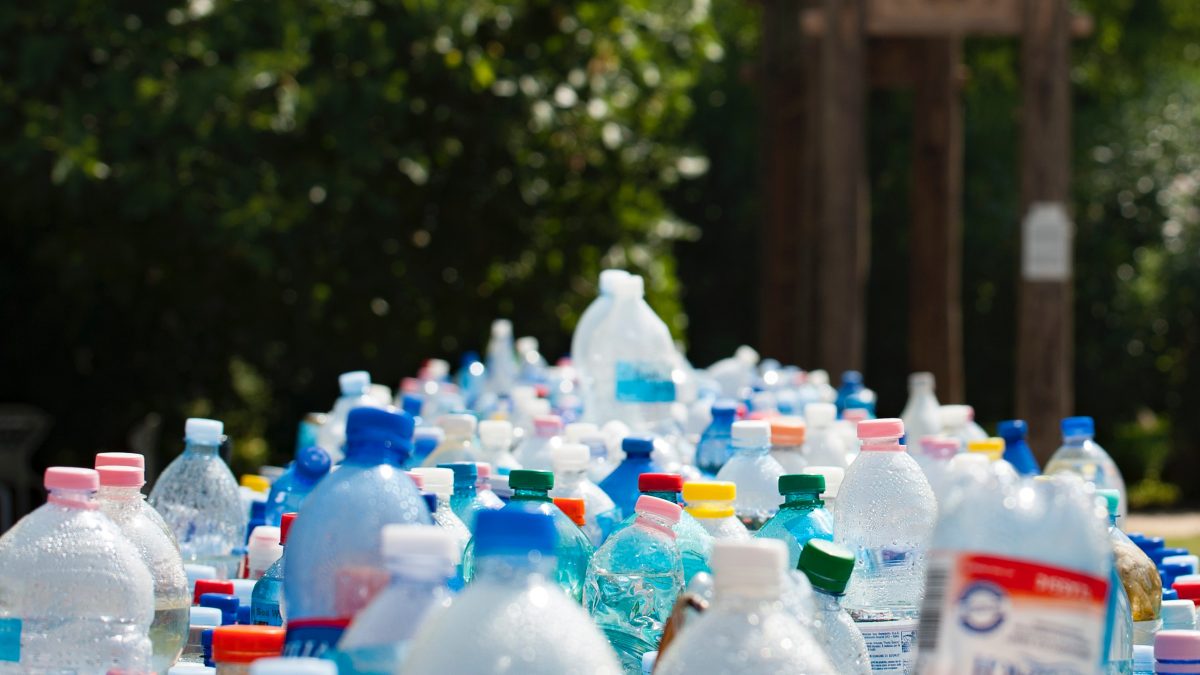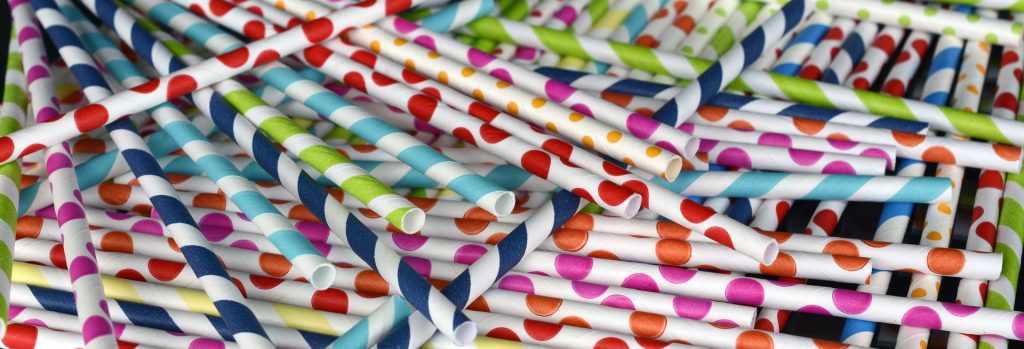World Environment Day: Beating Plastic Pollution

Business Profile: Gavin Jones Consultancy
29th May 2018
Business Profile: Storage Plymouth
29th May 2018World Environment Day occurs on the 5th of June ever year, and is the United Nations principal vehicle for encouraging worldwide awareness and action for the protection of our environment. First held in 1974, it has been a flagship campaign for raising awareness on emerging environmental issues from marine pollution, human overpopulation to sustainable consumption and wildlife crime.
The Annual theme for 2018 is ‘beat plastic pollution’. This theme is a call to action for all of us to come together and combat of the greatest environmental challenges of our time. WED invites everyone to consider how we can make every day changes in our lives to reduce the heavy burden of plastic pollution on our natural places, our wildlife- and our own health.
While plastic has many valuable uses, we have become over reliant on single- use or disposable plastic, with severe environmental consequences.
Around the world, 1 million plastic drinking bottles are purchased every minute. 500 billion disposable plastic bags are used worldwide every year. In total, 50 per cent of the plastic we use is single use.
Nearly one third of the plastic packaging we use escapes collection systems, which means that it ends up clogging our city streets and polluting our natural environment.

Every year, up to 13 million tons of plastic leak into our oceans, where it smothers coral reefs and threatens vulnerable marine wildlife. The plastic that ends up in the oceans can circle the Earth four times in a single year, and it can persist for up to 1,000 years before it fully disintegrates.
Plastic also makes its way into our water supply – and thus into our bodies. What harm does that cause? Scientists still aren’t sure, but plastics contain a number of chemicals, many of which are toxic or disrupt hormones. Plastics can also serve as a magnet for other pollutants, including dioxins, metals and pesticides.
We’re half way through 2018, and this year has already seen a number of concrete steps to combat plastic pollution in the United Kingdom.
Changing public opinion, along with new restrictions on sending plastics to China (which previously took in 66 per cent of the UK’s plastic waste), have forced businesses and government bodies to reconsider traditional strategies for dealing with discarded plastic.
An increasing number of UK restaurants and pubs are joining the global movement to end the use of plastic straws. Chains such as Costa Coffee, Pizza Express, Wagamama restaurants, and Wetherspoons have all put plans into place to phase out the use of non-biodegradable drinking straws in 2018.
A number of independent establishments have also followed suit, encouraging customers to forego the straw or use a biodegradable one.
In January, a government ban on plastic microbeads officially went into effect. The miniature plastic particles are widely used in cosmetics, soaps, and toothpastes, and due to their small size, can slip through treatment plants and pollute rivers and lakes. The first phase of the ban prevents the plastics from being used in the making of cosmetics and cleaning products, followed by a complete sales ban in July.
This law follows similar ones passed by the United States, Canada, and Ireland, as well as moves by global cosmetics companies to phase out the use of such products.
In January the UK supermarket chain Iceland made headlines when it announced plans to eliminate plastic packaging for all Iceland branded products. The company released a five-year strategy that calls for introducing paper and pulp food containers, as well as paper bags, all of which can be returned to in-store recycling facilities.
 Easy ways to reduce the amount of plastic you use:
Easy ways to reduce the amount of plastic you use:
Carry a reusable bottle: The British public uses over 35 million plastic bottles a year – Carrying your own bottle will help stop this waste stream entirely whilst saving you money
Say no to plastic straws: Plastic straws might seem harmless, but they are an unnecessary use of plastic. When ordering at a restaurant, or bar ask the server for a drink without a straw.
Carry your own coffee cup: contrary to popular belief our single-use coffee cups are not recyclable due to the plastic lining, therefore every cup used will sit in landfill or be incinerated. By purchasing a reusable cup, coffee drinkers can help to stop this stream of non-recyclable waste.
Buy bar soap and shampoo: Cut down unnecessary plastic waste by opting for bars of soap and shampoo rather than plastic contained alternatives. Bar shampoo can be purchased from many high-street retailers, including Lush.
Use reusable household items: Those who take a lunchbox to work should consider taking reusable sandwich bags. Instead of using clingfilm use a Tupperware, or glass container and try swapping your regular toothbrush for a bamboo alternative.
Use canvas bags for carrying vegetables: Consumers should consider taking extra canvas bags to carry their loose fruit and vegetables, rather than using disposable plastic alternatives offered at supermarkets.





